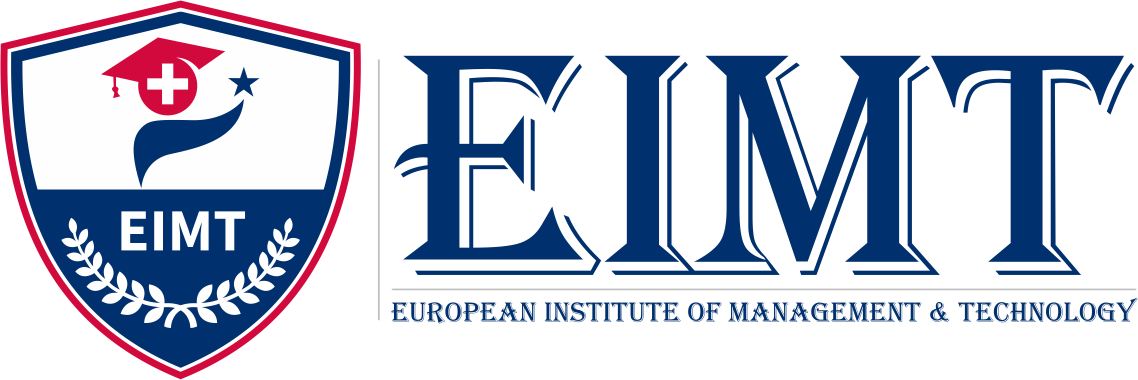
Master Of Arts In Psychology
- Home
- Master Of Arts In Psychology
Program Overview
At the advanced level, psychology is a complete and thorough study of psychology as one of their disciplines. The Master of Arts in Psychology program examines mental processes, motivations, reactions, emotions, conflict resolution, crisis management, group thinking, motivation, and the nature of the mind.
Salient Features
-
24 Months online Program.
-
Specially Designed for Working Professionals
-
International Networking Opportunities.
-
Highly Qualified Industry Experienced Faculties.
-
Focused & Unique Curriculum.
-
Discover the latest motivational trends.
-
Develop real-life problem-solving abilities.
Achieve Your Dream
Master Of Arts In Psychology
MA Psychology Key Learning Majorly Focuses on
- Students will demonstrate basic competency in applied psychology and counseling theories.
- The influence of other cultures, diverse aspects, and social stress on clinical practice and mental health and recovery will be integrated into the student's understanding.
- The influence of other cultures, diverse aspects, and social stress on clinical practice and mental health and recovery will be integrated into the student's understanding.
- Links to outside organizations that provide volunteer opportunities.
-
MASTER OF ARTS IN PSYCHOLOGY
This course is for students who want to develop their analytical thinking, compassion, and perseverance. Ethical accountability and problem-solving skills are other good attributes of this course. People with good communication skills are always welcome. This course is perfect for students looking for a fulfilling career that helps people overcome mental illness.
Master of Arts in Psychology
- Eligibility: Bachelor's Degree
- Duration: 24 Months
- Enrollment: Throughout the Year
Important Information Regarding MA Psychology Program
Program Delivery



Professional Professors
General Admission Requirements:
Candidates are eligible for admission by satisfying the following admissions criteria:-
A bachelor’s / Undergraduate degree.
-
Submission and evaluation of graduate school applications including; undergraduate academic transcripts, ID or passport copy, and resume.
-
Applicants for the MA Psychology program are exempted from an English exam provided they completed their schooling years and/or bachelor’s program at a recognized school where the medium of teaching is English.
Application Go Through:
Applications are only accepted online. Once the application form is received, our team looks after the past performance and future potential and will contact you accordingly.
What is Next?
The Curriculum
Modules during your course work
-
Theoretical Perspectives of Psychology
Students will learn a historical perspective on the development of psychology as an independent body of knowledge. Emphasis is placed on understanding human behavior from each school’s perspective in terms of human motivation, personality development and function, and applying each school’s principles to human development and therapeutic value.
-
Cognitive Psychology
Cognitive psychology is one branch of psychology that deals with many specialized human functions. Developments in scientific fields, especially computer science and neurology, have brought about a paradigm shift in our understanding of human behavior. Students should be taught directions in this direction.
-
Biopsychology
Students would get an orientation towards the dynamics of brain behaviour complexity. Each unit would deliberate on psycho physiological correlates accounting for general phenomena, individual differences, and abnormal functions of human behaviour.
-
Research Methods
Psychology being a science subject measurement and quantification is of great importance. Undertaking an empirical study, Testing the accuracy of the findings require sound knowledge about the various statistical techniques and tests. Students would get acquainted with the types of research, designs and the ways and means of analysing the data.
-
Personality Psychology
The primary objective of the study of psychology is to understand individual differences. Personality is one of the variable that accounts for individual differences in the manner in which people understand and react to the various life experiences. Understanding of personality is essential across the stages of development in shaping the personality for its optimal functioning.
-
Counselling and guidance
The professional services of a psychologist in the modern era has undergone a paradigm shift from clinical orientation to enhancing quality of life. Professional counselling approach and guidance based on objective, scientific guidelines would ensure the quality of life. The paper highlights on the principles, theories and the requirements for an effective counselling psychologist.
-
Child Psychopathology
The paper provides the student with a thorough understanding of the causes, features and therapeutic intervention on developmental psychopathology.
-
Qualitative Research Methods
This paper provides students with a critical understanding of qualitative research methods in Psychology. The focus of this paper is also to use qualitative methods in conjunction with quantitative methods and independently. The hands on experiences will help the students to design qualitative studies and the importance of qualitative research in Psychology.
-
Organizational Behavior I –A micro perspective
Organisational behaviour is one of the branches of psychology with an objective of understanding people at work place. The factors related to individual differences like perception, learning, personality, motivation, etc., would contribute to satisfaction and effectiveness at both individual and organisational level. The dynamics of these factors are introduced to the students through this paper.
-
Psychopathology
This paper aims to give a broad idea of the field of clinical psychology and to familiarize the student with the psychopathological aspects of human behavior. -
Psychological Therapies
This paper aims at providing adequate information regarding the psycho therapeutic techniques for enhancing the psychological well-being of individuals.
-
Organizational behaviour II -A Macro perspective.
The paper emphasises on understanding the interpersonal dynamics at the workplace contributing to organisational performance and effectiveness.
-
Social and Community Psychology
This course enables students to understand the concepts and theories of social behavior and think more about social phenomenon. The students learn about social systems and individual well-being in the community contexts. This also helps the students to learn more about Indian community behavior.
-
Rehabilitation Psychology
The disability sector is one of the areas particularly neglected by social scientists. Professional questions about understanding people with disabilities, their causes, concerns, management and interventions require a scientific approach. This post aims to provide something similar.
-
Positive psychology
The course enables the students to look at the strength-based part of psychology. The paper helps the students to explore what makes people happy. The overall focus of the course is to equip students to enhance subjective well-being. The course also equips students to be familiar with research that supports the concepts and application of positive psychology, especially in the Indian context.
-
Dissertation
A complete project report of selected area of research.
Frequently Asked Questions
-
Is there scope for a MA in psychology?
Yes, the scope and employment opportunities of an MA in psychology are vast, given the growing demand for psychological counselling. This training would be beneficial in a number of private hospitals, NGOs, clinics, organisational consulting firms, and recruiting fields.
-
Can students after MA Psychology become a Counsellor?
Students can become counsellors with the help of a degree in an appropriate field of psychology. But a degree in nursing, social work, or education may help students break into the counselling industry.
-
What is the difference between a MA in psychology and a Master of Science in psychology?
An MA in psychology degree makes you learn about the humanities, but a master of science in psychology is about research.
-
Is there any age limit for a Master of Arts in Psychology?
There is no maximum age limit for admission to Master of Arts in Psychology.
-
What are the dominant career options for students with a master’s in psychology?
Students can get different jobs with a master's in psychology like clinical psychologists, social workers,Psychotherapist,Psychology Professor, Research Psychologist. counseling psychologists,,etc.
-
Do you have placement after MA Psychology?
Yes. We have a placement cell to assist the students in finding suitable jobs.
-
English is not my first language; can I successfully complete this program?
While non-native English speakers have graduated from our programme in the past (and performed admirably), all of our courses are taught in English only, so your ability to interact with clients, professors, and peers in an effective manner through oral and written communication is crucial to your success.
-
Are there any opportunities for project work or internship?
As part of their evaluation, students complete project work, case analyses, role plays, individual or group research, experiential activities, simulation exercises, etc. In order to get the skills they need to work as mental health professionals, they also participate in internship programmes at NGOs and visit mental hospitals, research institutions, counselling centres, and special schools.
-
What are the skills one acquires in this course?
Students gain disciplinary knowledge, communication skills, critical thinking, analytical reasoning, problem solving, research-related skills, and scientific reasoning.
-
Do I need to have clinical experience to be a good candidate for graduate school?
In general, clinical programs know there are only a few opportunities for undergraduates to get clinical experience prior to graduate school. The answer will be 'no'. but you need to make the decision before applying.
-
How do I make use of a faculty adviser?
The Psychology Department does not frequently designate faculty advisors, and our professional advising team handles most of the advising. However, the majority of professors are eager to discuss their specialities in psychology with students. Keep in mind that faculty members are busy, so setting up an appointment is usually preferable to dropping by.
